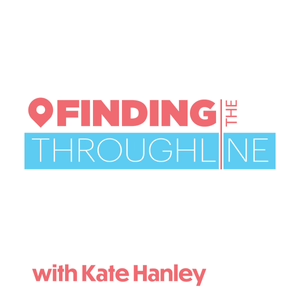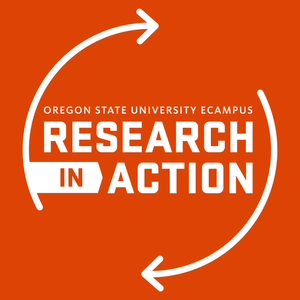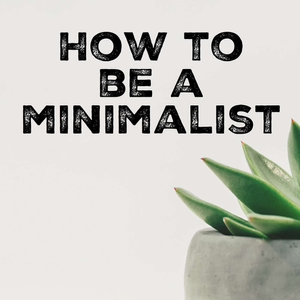
The Science Behind Depression and Anxiety | with Dr. D and Dr. Michael Mark
12/05/17 • 65 min
When discussing depression and anxiety, it’s not uncommon to hear people say things like, “Why don’t you just snap out of it!” or, “You just need to get some sleep and you’ll be fine.” But unfortunately for many people like myself, depression and anxiety come part and parcel with being blessed with creative talents. There is no simple way to “snap out of” depression or “sleep off” anxiety if you have the genetic predisposition towards both of these ailments or if your biochemistry has been altered due to external events or circumstances. In this episode I have an in-depth conversation with not one but two experts on the topics of depression and anxiety, Dr. Edison de Mello and Dr. Michael Mark. We talk about the science and biology behind depression and anxiety which can hopefully help you understand why feeling depressed or anxious isn’t “all your fault.” More importantly, beyond simply understanding the neurobiology, we also discuss several treatment protocols that go well beyond simply “popping pills.”
Want to Hear More Episodes Like This One?
» Click here to subscribe and never miss another episode
Here's What You'll Learn:
- Why there is so much anxiety and “circumstantial" depression in the film industry
- How diet and psychology factor into treating depression beyond pharmacology
- What is cortisol, why you need it, and why too much is bad for you
- Using qEEG and LORETTA to measure neuroelectrical signals in the brain and identify depression or anxiety
- How depression and anxiety are quantifiable
- How to identify whether you need to see a professional or if you just need “a good night’s sleep”
- The cultural expectation that men can’t be “sad” and women can’t be “angry”
- The generalized picture of a introductory session in integrative medicine
- A generalized treatment protocol for a new patient who has anxiety or depression
- What an initial session looks like for neurofeedback to treat anxiety or depression
- Neurofeedback is just “playing a game, and your brain is the joystick”
- What a “default brain network” is in laymen’s terms
- The brain being a combination of fast & slow frequencies and how they relate to anxiety and depression
- Using biofeedback and Heartmath to reduce anxiety
- How to properly breathe from the belly to increase oxygen intake
Useful Resources Mentioned:
NeuroEdge Centers
Our Generous Sponsors:
This episode is made possible by Ergodriven, the makers of the Topo Mat, my #1 recommendation for anyone interested in moving more at their height-adjustable workstation. Listen, standing desks are only great if you’re standing well, otherwise you’re constantly fighting fatigue and chronic pain. Not like any other anti-fatigue mat, the Topo is scientifically proven to help you move more throughout the day which helps reduce discomfort and also increase your focus and productivity. And they’re really fun and a great conversation starter.
Guest Bio:
Dr. Michael Mark is a neuropsychologist, legal professional, and the co-founder of NeuroEdge Inc, a sports concussion and brain treatment center in Southern California. He holds degrees from UCLA and ABSI in Political Science and Neuropsychology, as well as a Juris Doctorate from Southwestern University. He has been an entertainment manager, a professional sports agent, and a lawyer for industry elites. But his current specialty is treating traumatic brain injuries, neurological disorders, and optimizing human performance.
Show Credits:
This episode was edited by Curtis Fritsch, and the show notes were prepared and published by Jakin Rintelman. Special thanks to
When discussing depression and anxiety, it’s not uncommon to hear people say things like, “Why don’t you just snap out of it!” or, “You just need to get some sleep and you’ll be fine.” But unfortunately for many people like myself, depression and anxiety come part and parcel with being blessed with creative talents. There is no simple way to “snap out of” depression or “sleep off” anxiety if you have the genetic predisposition towards both of these ailments or if your biochemistry has been altered due to external events or circumstances. In this episode I have an in-depth conversation with not one but two experts on the topics of depression and anxiety, Dr. Edison de Mello and Dr. Michael Mark. We talk about the science and biology behind depression and anxiety which can hopefully help you understand why feeling depressed or anxious isn’t “all your fault.” More importantly, beyond simply understanding the neurobiology, we also discuss several treatment protocols that go well beyond simply “popping pills.”
Want to Hear More Episodes Like This One?
» Click here to subscribe and never miss another episode
Here's What You'll Learn:
- Why there is so much anxiety and “circumstantial" depression in the film industry
- How diet and psychology factor into treating depression beyond pharmacology
- What is cortisol, why you need it, and why too much is bad for you
- Using qEEG and LORETTA to measure neuroelectrical signals in the brain and identify depression or anxiety
- How depression and anxiety are quantifiable
- How to identify whether you need to see a professional or if you just need “a good night’s sleep”
- The cultural expectation that men can’t be “sad” and women can’t be “angry”
- The generalized picture of a introductory session in integrative medicine
- A generalized treatment protocol for a new patient who has anxiety or depression
- What an initial session looks like for neurofeedback to treat anxiety or depression
- Neurofeedback is just “playing a game, and your brain is the joystick”
- What a “default brain network” is in laymen’s terms
- The brain being a combination of fast & slow frequencies and how they relate to anxiety and depression
- Using biofeedback and Heartmath to reduce anxiety
- How to properly breathe from the belly to increase oxygen intake
Useful Resources Mentioned:
NeuroEdge Centers
Our Generous Sponsors:
This episode is made possible by Ergodriven, the makers of the Topo Mat, my #1 recommendation for anyone interested in moving more at their height-adjustable workstation. Listen, standing desks are only great if you’re standing well, otherwise you’re constantly fighting fatigue and chronic pain. Not like any other anti-fatigue mat, the Topo is scientifically proven to help you move more throughout the day which helps reduce discomfort and also increase your focus and productivity. And they’re really fun and a great conversation starter.
Guest Bio:
Dr. Michael Mark is a neuropsychologist, legal professional, and the co-founder of NeuroEdge Inc, a sports concussion and brain treatment center in Southern California. He holds degrees from UCLA and ABSI in Political Science and Neuropsychology, as well as a Juris Doctorate from Southwestern University. He has been an entertainment manager, a professional sports agent, and a lawyer for industry elites. But his current specialty is treating traumatic brain injuries, neurological disorders, and optimizing human performance.
Show Credits:
This episode was edited by Curtis Fritsch, and the show notes were prepared and published by Jakin Rintelman. Special thanks to
Previous Episode

How to Rewrite Your Own Story | with Dr. Steven Isaacman
The term “Psychoanalysis” comes with plenty of baggage, not the least of which is images of Freud asking someone about their relationship with their mother, or on the opposite end of the spectrum someone lying down on a couch expressing their innermost fears and desires only to have a practitioner passively responding with, “and how did that make you feel?” Ugh....shoot me.
But despite some of the negative stigmas surrounding therapy and mental health in our society today, there’s a lot more to the science and art of psychoanalysis than you may know, and in this episode I dive deep into the therapy rabbit hole with Dr. Steven Isaacman who specializes in working with creative professionals who deal with mental health issues (myself included).
This interview is a very candid look at the process of psychoanalysis using my own experiences as an example for others, and you’ll learn just as I did how powerful the scripts are we have in our mind that drive most of our behaviors. More importantly, as a creative professional you’ll understand how to rewrite your own script and your own story to drive your attitudes, perceptions, and behaviors in a very different direction if you’re willing to put in the hard work necessary to understand yourself.
Want to Hear More Episodes Like This One?
» Click here to subscribe and never miss another episode
Here’s What You’ll Learn:
- Dr. Isaacman’s career path and early experience in marital therapy
- What’s the difference between therapy and psychoanalysis?
- Purging the negative stigma surrounding therapy and psychoanalysis
- The importance of communicating importance through metaphor
- Growing comfortable with your most emotionally raw self
- Rewriting the hindering scripts that dominate your life
- It’s okay to not be prepared with a topic list when you come to therapy
- How preparedness can be an obstacle to psychological cleansing
- Learning to stop being ashamed of your unconscious self
- Knowing that we will always be in the process of growth and development
- Embracing the beautiful potential of failure
Our Generous Sponsors:
This episode is made possible by Ergodriven, the makers of the Topo Mat, my #1 recommendation for anyone interested in moving more at their height-adjustable workstation. Listen, standing desks are only great if you’re standing well, otherwise you’re constantly fighting fatigue and chronic pain. Not like any other anti-fatigue mat, the Topo is scientifically proven to help you move more throughout the day which helps reduce discomfort and also increase your focus and productivity. And they’re really fun and a great conversation starter.
Guest Bio:
Dr Isaacman is a licensed marriage and family therapist and a certified psychoanalyst in private practice since 1992 with an office in West Hollywood, CA. While he works with a broad variety of patients, he is particularly interested in working with curious and creative individuals, many of whom work in the entertainment industry.
Dr Isaacman believes that the patient/therapist relationship can open possibilities for rich fulfillment in both personal and professional realms. Some people are eventually grateful for the symptom that brought them in, as learning about oneself can be profoundly joyous, even while being difficult.
Show Credits:
This episode was edited by Curtis Fritsch, and the show notes were prepared and published by Jakin Rintelman. Special thanks to Krystle Penhall and Sarah Furie for helping to spread the love!
The original music in the opening and closing of the show is courtesy of Joe Trapanese (who is quite possibly one of the most talented composers on the face of the planet).
Note: I believe in 100% transparency, so please note that I receive a small commission if you purchase products from some of the links on this page (at no additional cost to you). Your support is what helps keep this program alive. If you have any questions, please don’t hesitate to
Next Episode

Protecting Your Vision Using 'Iris' | with Daniel Georgiev
For those of us who spend most of our waking hours sitting in front of screens (i.e. ALL of us), we’ve learned a lot recently about the negative health effects of screen exposure, especially when it comes to eye health. I’ve seen a lot of activity in Facebook groups in the last few months especially about eye health and protecting yourself from blue light. I’ve done past podcasts with sleep experts such as Shawn Stevenson and Ben Greenfield about how to get better sleep in part by limiting exposure to blue light in the latter half of the day, but I’ve yet to have an expert on the podcast to talk specifically about what can be done to limit the health problems created by looking at computer screens all day.
In this episode I chat with Daniel Georgiev, a young but extremely talented computer programmer from Bulgaria who created the software program Iris which is now an indispensable tool in my toolkit. I’ve talked about F.lux many times in the past and recommended it for years, but now my #1 recommendation for eye health if you work in front of a computer is Iris. I have it installed on every computer I own and can’t live without it. Daniel and I talk about how Iris works, why he created it, and more importantly what you can do to mitigate the negative effects on your eyes of working on computers for long hours.
Daniel was also kind enough to offer an activation code for a free activation of either Iris Pro or Iris Mini Pro. He’s offering 100 activations of each, first-come first-served. Just use the coupon code "team-optimize" at optimizeyourself.me/iris to get your free license.
NOTE: In order to activate, you must download the free version first and then activate the full version with your code.
Want to Hear More Episodes Like This One?
» Click here to subscribe and never miss another episode
Here's What You'll Learn:
- How damaging can staring at a computer be?
- Eye exercises that combat eye strain
- What effects flickering LED displays have on your irises
- Daniel's experience with eye strain and extended exposure to monitor light
- How blue light an inappropriate times can cause macular degeneration
- Blue light's damaging effects aren't limited to just nighttime
- How Iris improves eye health over the course of the entire day
- Ways in which low monitor brightness can be just damaging as high brightness
- How typographical, color, and brightness standards are threatening our vision
Useful Resources Mentioned:
How technology is killing our eyes | Daniel Georgiev | TEDxVarna
Our Generous Sponsors:
This episode is made possible by Ergodriven, the makers of the Topo Mat, my #1 recommendation for anyone interested in moving more at their height-adjustable workstation. Listen, standing desks are only great if you’re standing well, otherwise you’re constantly fighting fatigue and chronic pain. Not like any other anti-fatigue mat, the Topo is scientifically proven to help you move more throughout the day which helps reduce discomfort and also increase your focus and productivity. And they’re really fun and a great conversation starter.
Guest Bio:Facebook
Daniel Georgiev is a 21 year old computer programmer from Bulgaria.
Before he learned to code, Daniel was a rower in his country's national team for more than 5 years, and participated in the 2012 World Rowing Junior Championship.
Daniel is the creator of Iris - software for eye protection with more than 1 million users worldwide.
Show Credits:
This episode was edited by Curtis Fritsch, and the show notes were prepared and published by Jakin Rintelman. Special thanks to Krystle Penhall and Sarah Furi...
If you like this episode you’ll love
Episode Comments
Featured in these lists
Generate a badge
Get a badge for your website that links back to this episode
<a href="https://goodpods.com/podcasts/the-zack-arnold-podcast-80416/the-science-behind-depression-and-anxiety-with-dr-d-and-dr-michael-mar-4301285"> <img src="https://storage.googleapis.com/goodpods-images-bucket/badges/generic-badge-1.svg" alt="listen to the science behind depression and anxiety | with dr. d and dr. michael mark on goodpods" style="width: 225px" /> </a>
Copy





